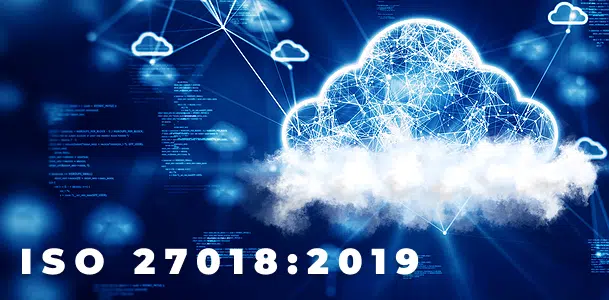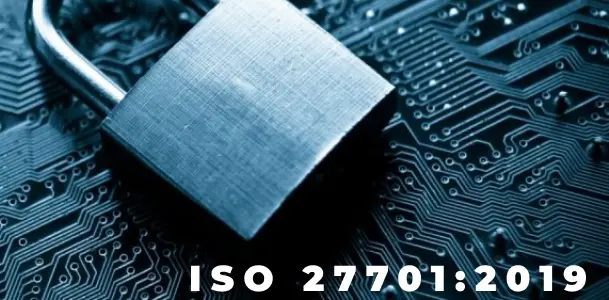Singapore
ISO Certification in Singapore
The rise of globalization has made companies worldwide produce goods for sale worldwide. Thus, it is essential to make better goods and services. In Singapore, getting ISO certification is crucial for business growth. The company must follow specific standard controls and rules to do business worldwide. On the other hand, having ISO certification in Singapore means that a business follows strict rules. ISO in Singapore is essential for building trust in goods and services where the market changes. In addition, it makes the service or product better and more popular worldwide.
In the middle of the 20th century, ISO was created to assure people about the standards of the products. Therefore, it ensures that people are safe at work. ISO in Singapore makes it easy to do business with other countries and ensures that the items are of good quality. Hence, it helps companies grow all over the world. To find out more about ISO in Singapore, read the whole page.
WHY ISO CERTIFICATION IN SINGAPORE?
ISO certification in Singapore helps your business find new opportunities. Therefore, ISO helps your company meet customer needs. Also, getting certified can help you improve your business growth and opportunities. Thus, your company can better handle changes in the market. Further, ISO certification in Singapore avoids the repetition of mistakes. ISO also helps them promote their approval status.
Moreover, selling your business this way shows that it meets international standards, making it more appealing on the world market. In the same way, companies want their sellers to have ISO certification before creating the partnership. The certification process boosts worker satisfaction and prevents your business from lacking skills. If you have ISO certification, staying in business in the world market is more accessible.
UNDERSTANDING ISO CERTIFICATION IN SINGAPORE
In Singapore, ISO 9001 certification shows an organization’s commitment to providing reliable, high-quality goods and services. In addition, the ISO 14001 standard talks about being responsible for the environment, which is very important for Singapore. It grows its industry and makes a solid pledge to sustainable growth. With its focus on protecting private data, ISO 27001 fits Singapore’s plan to become digital. The diverse market in Singapore gains a lot from ISO certification, which makes customers believe in companies more and lets them fight globally. Additionally, ISO certification in Singapore makes products reliable by streamlining processes, cutting down on waste, and eliminating flaws.
Furthermore, ISO certification in Singapore gives companies the tools to build robust systems that align with best practices worldwide. ISO is a well-known and independent group that sets standards for many businesses to ensure high-quality services. Again, many countries use ISO standards, which makes it easier for Singaporean companies to sell their goods in other countries and gives them more respect. Thus, ISO-certified companies often have an edge over their competitors. It shows they are always committed to quality and growth. The environmental management covered by ISO 14001 certification is excellent for Singapore’s efforts to be more environmentally friendly.
Related Links
SOC 2 in Singapore
ISO 27701 in Singapore
GDPR in Singapore
ISO 27018 in Singapore
HIPAA in Singapore
CCPA in Singapore
PIPEDA in Singapore
ISO 17025 in Singapore
ISO 13485 in Singapore
CE Mark in Singapore
GDP in Singapore
GLP in Singapore
ISO 9001 in Singapore
ISO 14001 in Singapore
ISO 45001 in Singapore
ISO 22000 in Singapore
HACCP in Singapore
ISO 22301 in Singapore
ISO 21001 in Singapore
ISO 41001 in Singapore
ISO 20000-1 in Singapore
ISO standards often stress what the customer wants, which makes them happier and more likely to stay with the company. Singaporean sellers who work with global supply chains need ISO approval more than most. ISO certification helps Singaporean companies improve processes and remain competitive by emphasizing continuous growth. Lastly, ISO certification boosts a business’s reputation by showing that it meets global quality standards. This builds trust among partners and clients.

STEPS IN ISO CERTIFICATION PROCEdure IN SINGAPORE
To get ISO certification in Singapore, you need to follow these steps. However, the steps are adaptable, so the business can change them if necessary.
Preparation and Awareness: Before implementing the ISO standards, you should know your company’s goals. Knowing the rules, rewards, and ways to implement them makes the process easier.
Planning: Develop a detailed plan outlining what needs to be done to ensure your processes comply with the ISO standard. Then, make an execution plan and ensure everyone knows their job.
Documentation: Ensure that the policies, processes, work instructions, and records you need to make or keep up to date meet the standards of the ISO standard.
Implementation: Include your company’s written processes and policies throughout the layout. Hence, carefully monitor the process and make any necessary changes to ensure the release goes well.
Internal Audit: This examines how your business works now and finds problems. Because of the steps, changes need to be made before the final report.
Management Review: This process ensures your company and the ISO management system work well. It helps to determine the required changes for betterment.
Certification Body Selection: ISO does not offer certification; other groups do. So, carefully select the certification groups based on their quality and experience.
Stage 1 Audit (Document Review): The certification body’s first look at your paperwork and methods confirms that they meet ISO standards.
Stage 2 Audit (On-Site Audit): The certification body performs an on-site check to ensure that your ISO management system is being used correctly and to assess how well your processes follow the rules.
Certification Decision: The audit results are used by the certification group to decide whether to award certification. Your organization will get an ISO report if your business meets the standards.
Surveillance Audits: The certified group conducts regular audits, usually once a year, to ensure that the ISO standard is always followed.
Following and keeping close contact with the certification is crucial for avoiding non-compliance risks.
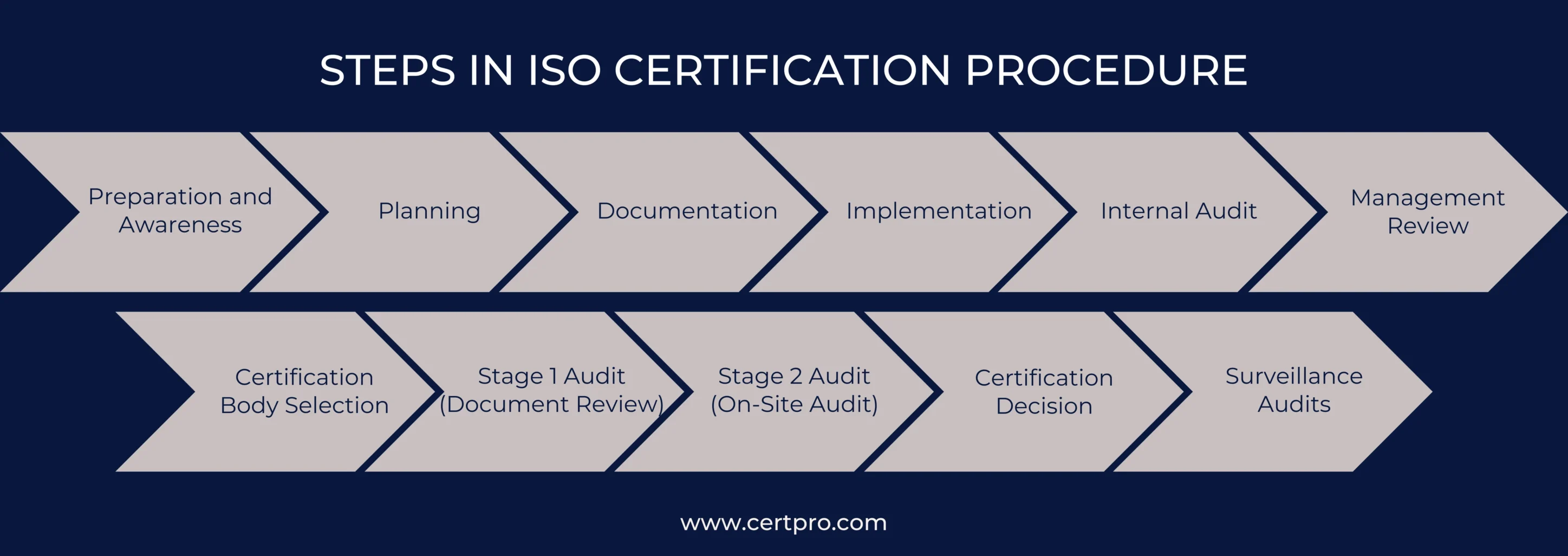
ISO CERTIFICATION PROCESSING TIME
ISO certification in Singapore process takes at least three to six months. The main point of getting certified is to do what you must be prepared for. Before their first check, a business has to set up and follow specific steps for a certain amount of time. You can also get help from a professional because putting ISO standards into practice is hard. CertPro, an ISO consultant in Singapore, could help you with this. CertPro will help you do the right things at the right time. The certificate continues for three years but must be updated yearly. You must work with skilled professionals like us to align your business with ISO standards.
CHECKLIST FOR ISO CERTIFICATION IN SINGAPORE
The audit checklist ensures that ISO rules are being followed. However, this plan isn’t fixed; it changes based on the company’s structure and complexity.
Organizational Context Assessment: Knowing the organization’s certification goals is crucial. Therefore, understanding internal and external forces, as well as users’ needs, helps in planning. The process also helps determine threats to an organization’s compliance.
Leadership Evaluation: It shows that the business is committed to providing excellent services and has the resources to ensure compliance with the rules.
Analysis of Strategic Planning: It is crucial to show how the plans work to enforce obedience. Thus, strategic planning ensures that the company’s resources are used.
Support Systems Evaluation: Establishing a quality control method is significant. Additionally, infrastructure, the working environment, knowledge, and techniques are all needed for the process.
Operational Processes Review: A business needs to examine its services closely. That helps it understand how weak it is. Again, this process requires a more in-depth look from someone outside the company.
Performance Evaluation Procedures: This helps determine how well the rules are working. Manager reviews, internal checks, and customer polls can all be used this way.
Continuous Improvement Mechanisms: Plan how the system can improve over time. According to ISO rules, steps should be taken to keep growth going.
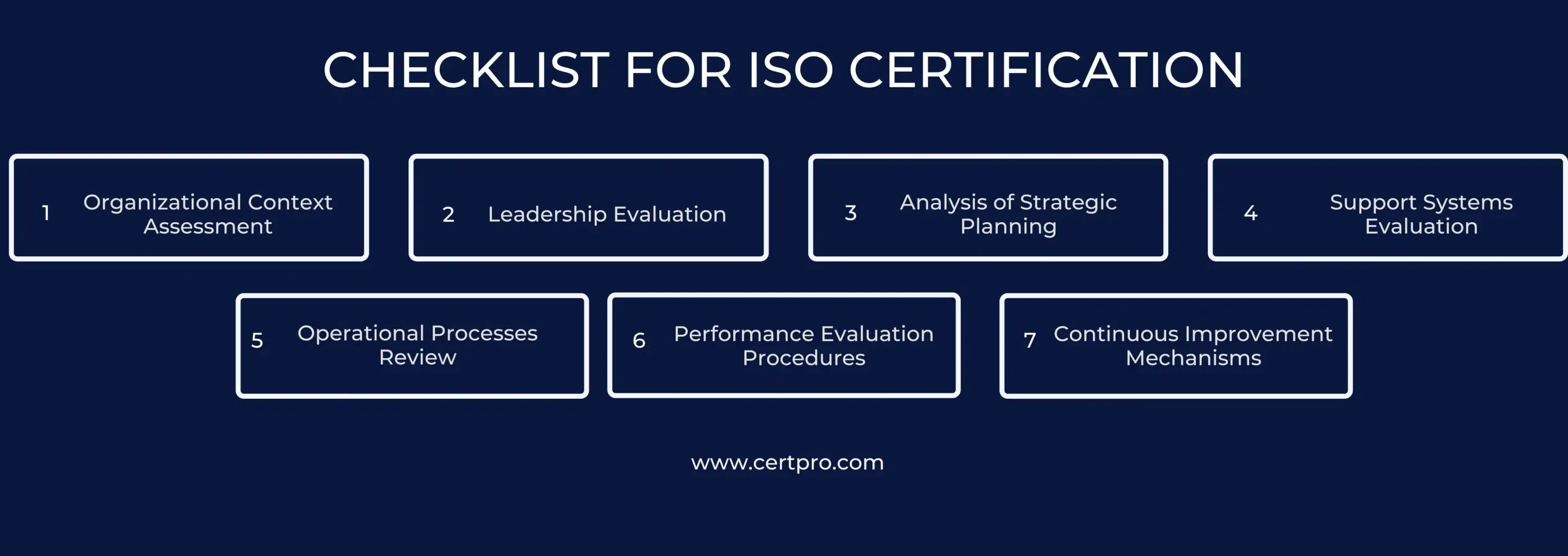
POPULAR ISO STANDARDS IN SINGAPORE
Getting ISO certification in Singapore is a big step for companies that want to raise the quality of their operations and become known worldwide for their dedication. Therefore, following strict rules set by the ISO is part of the process. This ensures that the organization meets the top standards in many areas of its work.
Companies in Singapore that want to gain a competitive edge in the global market should get ISO certification. This certification shows that you care about quality management and helps you get new business by giving clients and partners trust. In offering ISO certification in Singapore, the company’s systems and methods must be carefully examined, focusing on continuously improving. Thus, the certification shows that a company cares about quality and is a valuable tool to help its image and place in the market. Singapore’s ISO certification is also known worldwide, making business and working with partners from other countries easier. It shows a company’s commitment to greatness and ability to meet standards worldwide.
In conclusion, getting ISO certification in Singapore is a wise investment for companies that want to improve their managerial quality and advance in the fast-paced global market.
BENEFITS OF ISO CERTIFICATION IN SINGAPORE
Your business will do better if you get ISO certification in Singapore. With the certification, you can show that your business is a leader in quality management. So you can better understand it, here is a short list of the pros:
Improve Staff Performance and Productivity: ISO can make businesses in Singapore more efficient. Making the business process more uniform makes it easier for workers to follow a routine.
Transparent Processes: As part of the certification process, external auditors conduct an audit that clearly outlines what needs to be done next. ISO standards also show the company is dedicated to providing high-quality goods and services.
Improve Efficiency and Reduce Waste: Getting ISO certification in Singapore can help your company grow worldwide. It reduces operating costs and eliminates unnecessary costs. In Singapore, ISO sets standards for quality management systems, which can help businesses make more money.
Improved Customer Satisfaction: People will trust your business more if it has ISO. Therefore, getting ISO approval is an excellent way to show that you care about making good items and using efficient methods. If a Singapore business gets ISO approval, its goods and services meet high standards worldwide.
International Adaptability: Singapore’s ISO certification shows that its goods and services meet standards and can be sold worldwide.
These rules confirm that the business’s products and services meet rules from other countries. They also show that the company has a clear plan to eliminate or lessen any risks that might come up. Firms can work from anywhere worldwide after getting ISO, which helps them grow.
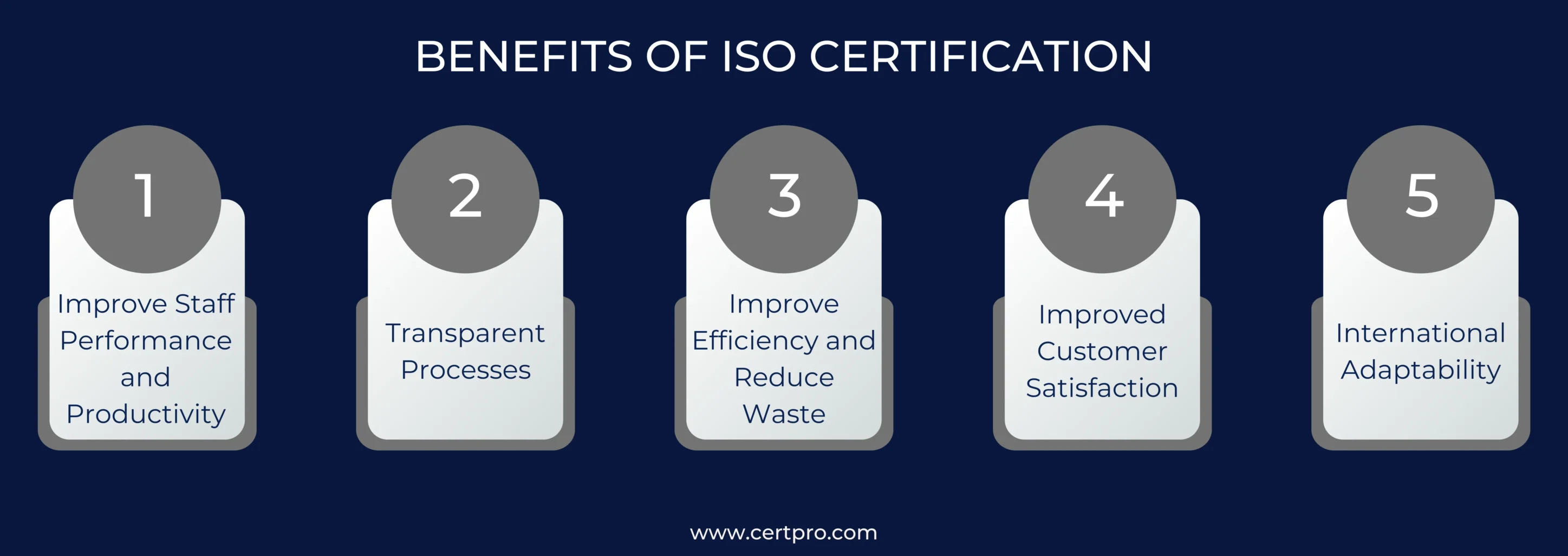
INDUSTRIES THAT BENEFIT FROM ISO CERTIFICATION IN SINGAPORE
ISO certification in Singapore has many benefits that affect the country’s industries. The certifications are more than just symbols; they are strongly dedicated to quality, safety, and the environment. Therefore, the industry sector sees the most benefits of ISO 9001 certification, which leads to better product quality and efficient operations. Furthermore, there is a mindset of always getting better, which makes customers happier and gives companies a strong base in competitive markets, making clients see them as reliable.
IT sectors in Singapore require ISO 27001 certification because data is so essential these days. It makes data security and risk management stronger. So, the field benefited from national technological advances while keeping private data safe. This certification is essential for building and maintaining client trust. By following the ISO/TS 16949 standard, the auto industry can ensure that cars are safe and reliable. Ensuring that strict quality standards, legal requirements, and accuracy are met in healthcare increases Singapore’s place as a world leader in creating luxury cars. It makes the country’s healthcare system better. The certification affects many fields, making it easier for people to get medical care, raising the status of schools, and encouraging people to use eco-friendly methods.
CERTPRO: EMPOWERING YOUR BUSINESS TO ATTAIN ISO CERTIFICATION EFFORTLESSLY
If your company has ISO certification in Singapore, it means that people worldwide can trust your company. CertPro can help your business follow ISO guidelines in this way. We are a well-known ISO consultant in Singapore. We follow the rules to give our customers the best service possible. In addition, our experts will help you develop a way to get certified. CertPro also changes the standards based on what the business needs. Finally, we will provide all the services needed for the approval and reports on the surveillance.
FAQ
Which ISO standards are relevant in Singapore?
The ISO standards relevant in Singapore include ISO 9001:2015 for quality management, ISO 14001:2015 for environmental management, ISO 27001:2013 for information security management, and ISO 50001:2013 for energy management.
How Can a Company Get ISO Certified in Singapore?
To obtain ISO certification in Singapore, a company needs to go through processes such as certification preparation, applying ISO standards, conducting internal audits, selecting a certification body, and completing external audits.
Which ISO certification is crucial for the IT sector in Singapore?
The ISO 27001 certification is crucial for the IT sector in Singapore, as it strengthens risk management and data security procedures, safeguarding sensitive information in the digital landscape.
How Does ISO Certification Benefit the Automotive Industry in Singapore?
ISO/TS 16949 certification ensures the safety and dependability of cars in the automotive industry in Singapore, reinforcing the nation’s position as a top producer of high-quality automobiles globally.
Who offers ISO certification services in Singapore?
Various ISO certification bodies operate in Singapore, providing comprehensive assessment, guidance, and certification services to assist businesses in navigating the certification process effectively.
IT COMPLIANCE IN 2024: ESSENTIAL TRENDS AND BEST PRACTICES
IT compliance is essential for every organization to secure the integrity and accountability of data. The process also helps develop the business and enhance its profitability. In today’s digital era, IT compliance has more than just a regulatory checkbox. It plays a...
POLICY MANAGEMENT SYSTEM: ESSENTIAL TOOLS FOR AUTOMATION AND SIMPLIFICATION
Growing businesses indicates that you become a master in your field and accurately manage all business-related policies. However, managing company policies can be daunting significantly when your business expands. Here, an effective policy management system can help...
CYBERSECURITY AUDITS: A STEP-BY-STEP GUIDE TO CONDUCTING ONE
In recent years, data breaches have become headlines in many large companies. Technological advancements have made the hacking process more strategic and complicated. Therefore, organizations must consider the cybersecurity audit seriously to avoid breaches and have a...



